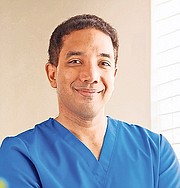By Dr Greggory Pinto
The United States Food and Drug Administration (FDA) on June 21, 2019, approved the new "female Viagra", a sexual libido enhancing medication called Vyleesi. Vyleesi is not a pill; it is a self or partner-administered injectable that should be given 45 minutes before sexual intercourse. It has been recommended that Vyleesi should not be administered more than once in a 24-hour period and it should not be used more than eight times in a given month.
Vyleesi is the second FDA-approved sexual libido enhancer, following the approval in 2015 of the drug Addyi. Addyi is a pill that works by modifying serotonin levels in the brain.
Both medications are prescribed to treat premenopausal Hypoactive Sexual Desire Disorder (HSDD) in women.
HSDD is a condition characterised by low or non-existent female sexual desire. Female hypoactive sexual disorder may occur in ten percent to as many as one third of premenopausal women. The main feature of this disorder is the deficiency or absence of sexual desire of sexual intercourse and the deficiency or absence of sexual fantasies in women that leads to severe distress and relationship problems; often negatively affecting the quality of these afflicted women’s lives. HSDD is not caused by co-existing medical conditions, such as diabetes or by any psychiatric conditions or as the result of other medications that are being taken.
Female desire is complex and multifactorial, and such it is often difficult to evaluate and interpret. Female sexuality can’t be measured in the same way as the sexual desire of men, as simply put, either a man gets an erection and maintains it or he does not.
Vyleesi, known as bremelanotide, is not truly a female version of Viagra as Viagra enhances the blood supply to the penis. Vyleesi works by activating melanocortin receptors that are involved in multiple brain functions including regulating moods and cognitive thoughts. The medication is a synthetic hormone that activates important brain receptors involved in sexual responses by reducing inhibition and increasing excitation of neurons. The complete pathway by which Vyleesi works, is still not completely understood. It has not yet been approved for use by postmenopausal women but trials continue involving such women.
Vyleesi has been evaluated in scientific trials by having participants fill out sexual desire score and sexual distress score questionnaires, which are highly subjective.
The effectiveness of Vyleesi was studied in two 24 weeks randomised, double blind, placebo-controlled trials involving more than 1,200 premenopausal women with hypoactive sexual desire disorder (HSDD).
Female sexuality and desire is very complex and there are many factors that contribute. Unfortunately, female sexuality remains a grossly understudied condition.
Low sexual desire in premenopausal women might be secondary to external factors such as marital strife, financial stressors, marital infidelity, emotional or physical abuse within the relationship or poor body self-image, amongst multiple potential causes.
Simply prescribing medication to all women with low sexual desire, greatly underestimates the potential complexity of the condition.
The measured success of Vyleesi has been underwhelming thus far but for women living in severe distress because of low sexual desire, any small improvement in sexual desire may provide a substantial improvement in the quality of their lives.
Most women, like their male counterparts, rarely seek medical urological assistance for sexual dysfunction, due to embarrassment and lack of understanding that medical treatment does exist to improve the quality of one’s lives.
Many women have low desire for sexual intercourse due to them having stress urinary incontinence, whereby they uncontrollably leak urine with any exertion, including sexual intercourse. As many as one in four women have a urinary issue that negatively impacts the quality of their lives and in turn potentially can negatively impact their sexual desire and happiness.
Modern urology provides pharmaceutical treatments, physiotherapy and minimally invasive procedures that can effectively treat all female urinary issues.
Seek confidential, compassionate and comprehensive urological care for any female or male sexual dysfunction and/or urinary complaint.
Dr. Greggory Pinto is a board certified Bahamian Urologist and Laparascopic Surgeon
Dr. Pinto can be reached at OakTree Medical Center
2 Fifth Terrace & Mount Royal Avenue, Nassau, Bahamas
Telephone – (242) 322-1145 (6) (7)
Email: welcome@urologycarebahamas.com or visit the website:www.urologycarebahamas.com





Comments
Use the comment form below to begin a discussion about this content.
Sign in to comment
OpenID